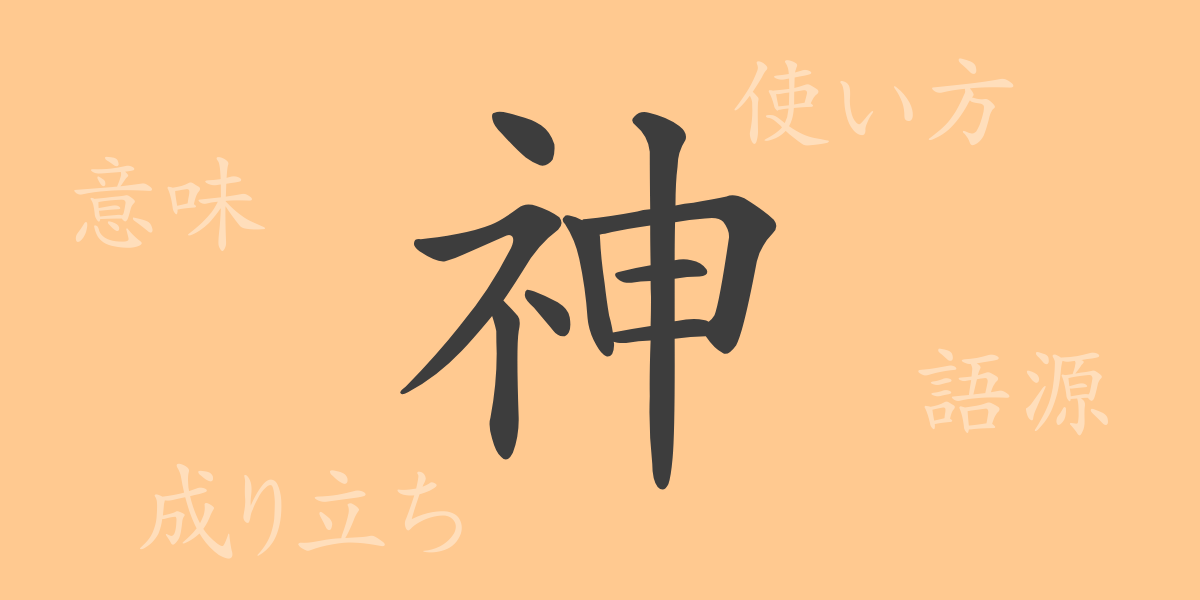The Kanji ‘神’ (かみ) holds immeasurable weight and mystique within Japanese culture. Deeply rooted in people’s lives for centuries, influencing myths, beliefs, and everyday language, this Kanji offers a key to understanding the relationship between the Japanese people and the divine. This article focuses on the Kanji ‘神’, exploring its origins, meaning, usage, as well as the idioms and proverbs it features in, shedding light on its versatility and significance.
Origins of 神 (かみ)
The Kanji ‘神’ originated from ancient Chinese oracle bone script. The ‘示’ part symbolizes an altar, while the ‘申’ part originally denoted thunder, representing divine revelations or supernatural forces associated with natural phenomena. In Japan, the gods documented in texts like the Kojiki and Nihon Shoki are closely linked to the formation of the nation, revered in Shinto as primal forces of nature and the universe.
Meaning and Usage of 神
‘神’ typically refers to deities or spirits possessing supernatural powers. It also connotes anything sacred or esteemed, used to express respect for others. Beyond religious contexts, ‘神’ appears metaphorically in phrases like ‘神業’ (かみわざ), praising extraordinary human skills or talents as divine acts.
Readings, Stroke Count, and Radical of 神
The Kanji ‘神’ has multiple readings and a simple yet profound structure:
- Readings: On’yomi ‘シン’, Kun’yomi ‘かみ’
- Stroke Count: 9 strokes in total
- Radical: 示 (しめすへん)
Phrases, Idioms, and Proverbs Involving 神
Many idioms and proverbs include ‘神’, each reflecting Japanese values and worldview. For example, ‘神出鬼没’ (しんしゅつきぼつ) describes unpredictable actions; ‘神経質’ (しんけいしつ) refers to being overly sensitive; and ‘神がかり’ (かみがかり) denotes extraordinary, almost mystical events. These expressions illustrate the enduring Japanese reverence and fascination with the mystical.
Conclusion on 神
The Kanji ‘神’ has evolved over time, deeply intertwining with Japanese life and spirituality. From mythology to modern language, its impact is profound. Understanding ‘神’ is crucial in appreciating Japanese culture and language, highlighting the importance of preserving its rich meanings and usages for future generations.

























